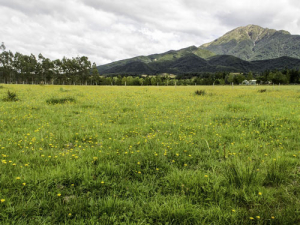NZ kiwifruit sector on alert for mysterious Italian disease
New Zealand's kiwifruit industry is on alert following reports of a mystery disease that is sweeping through Italian orchards.
 Pests are a symptom of an unsustainable farming method, says a visiting expert in ‘regenerative’ agriculture.
Pests are a symptom of an unsustainable farming method, says a visiting expert in ‘regenerative’ agriculture.
Farmers should stop treating agricultural pests as a problem, and instead realise they are a symptom of an unsustainable farming method, says a visiting expert in ‘regenerative’ agriculture.
Dr Jonathan Lundgren, founder of Ecdysis Foundation and Blue Dasher Farm, visited New Zealand for an international workshop on conservation biological control of invertebrate pests, hosted by the Bio-Protection Research Centre at Lincoln University.
He told workshop participants that healthy ecosystems do not have the pest problems that are present in ‘monoculture’ agriculture.
“If you have a pest problem in your field, that’s your field telling you that something is out of whack. If all you are doing is reacting to a pest problem, then you are never going to get ahead; you’ve got to solve the underlying problem, not just the symptoms.”
The underlying problem is lack of biodiversity, Lundgren said. “The way we approach our food production is much too simplified.”
Instead, he said, regenerative agriculture solves pest problems and is more profitable.
Regenerative agriculture goes beyond sustainable agriculture by trying to regenerate degraded land and ecosystems rather than simply sustaining what is left. Farmers who follow regenerative methods use few if any pesticides, don’t till the land, practise crop and stock rotation that mimic natural processes, and encourage biodiversity.
Lundgren said one study found more diverse and more populous insect communities in cow dung from regenerative farms, including more predators of pest species (mostly flies).
Coming in at a year-end total at 3088 units, a rise of around 10% over the 2806 total for 2024, the signs are that the New Zealand farm machinery industry is turning the corner after a difficult couple of years.
New Zealand's animal health industry has a new tool addressing a long-standing sustainability issue.
The Government has announced that ACC will be a sponsor of this year's FMG Young Farmer of the Year competition.
As veterinary student numbers grow to help address New Zealand's national workforce shortge, Massey University's School of Veterinary Science is inviting more veterinary practices to partner in training the next generation of vets.
South Island dairy farmers will soon be able to supply organic milk to Fonterra.
Norwood has announced the opening of a new Tasman dealership at Richmond near Nelson next month.